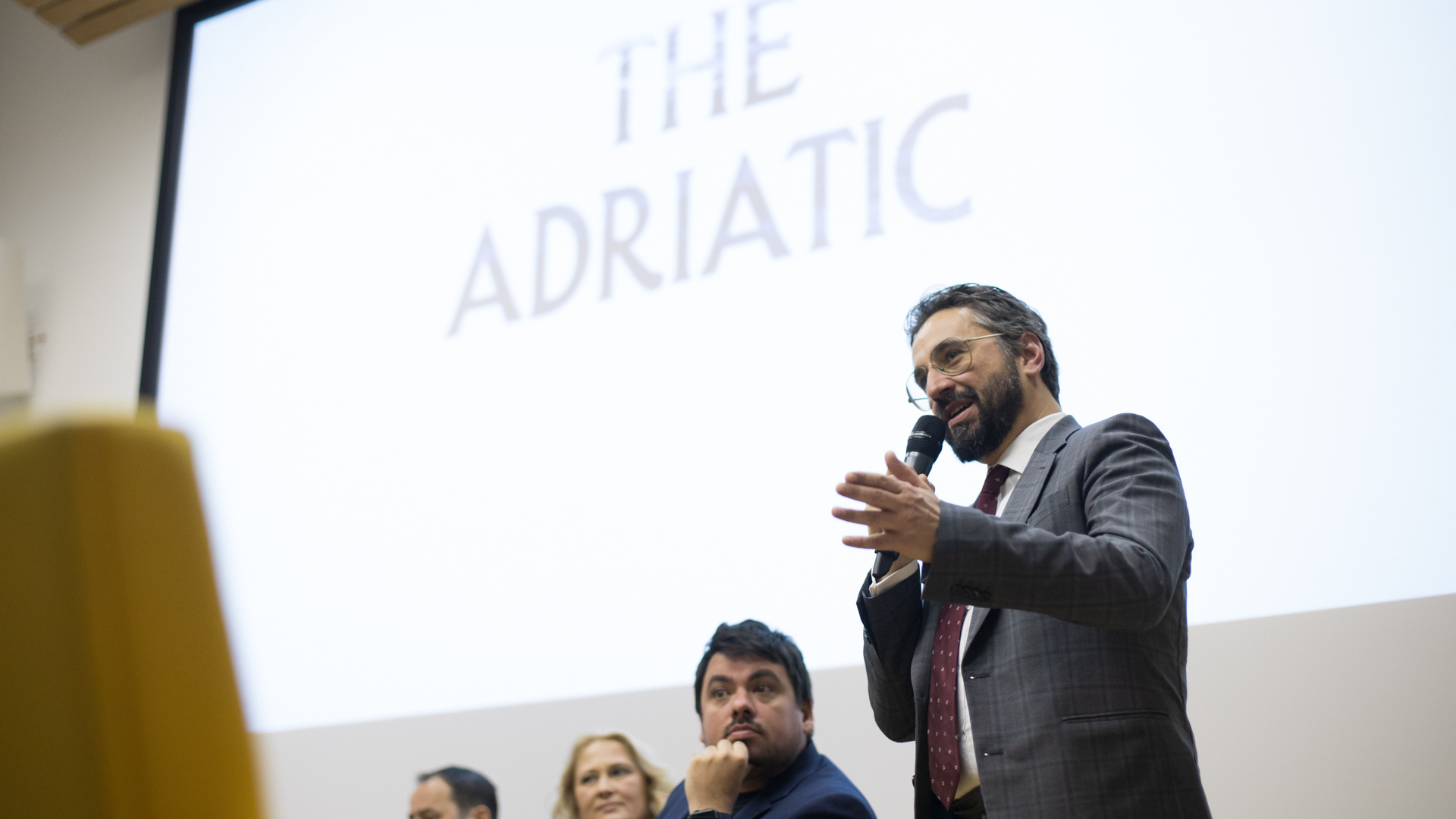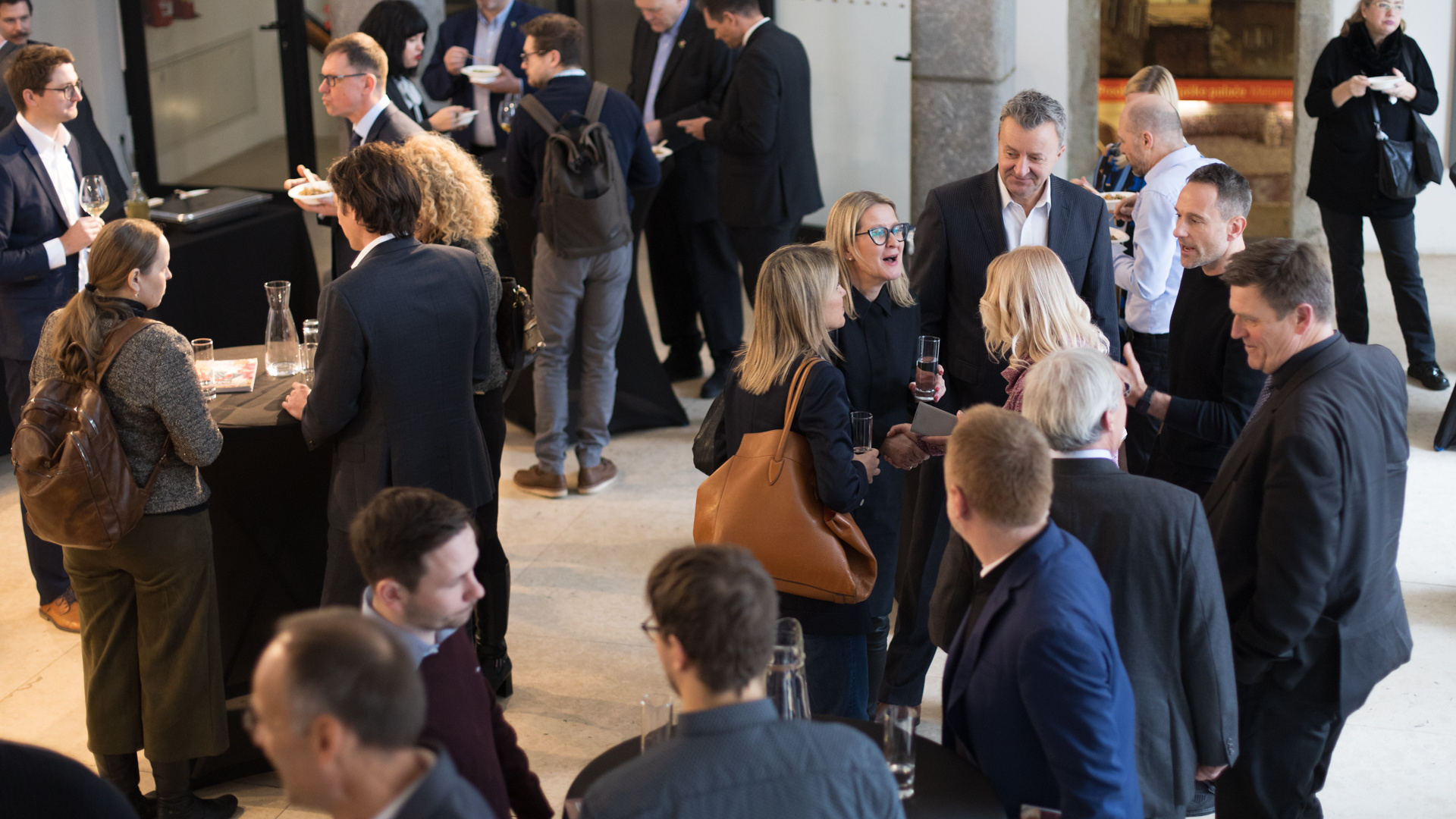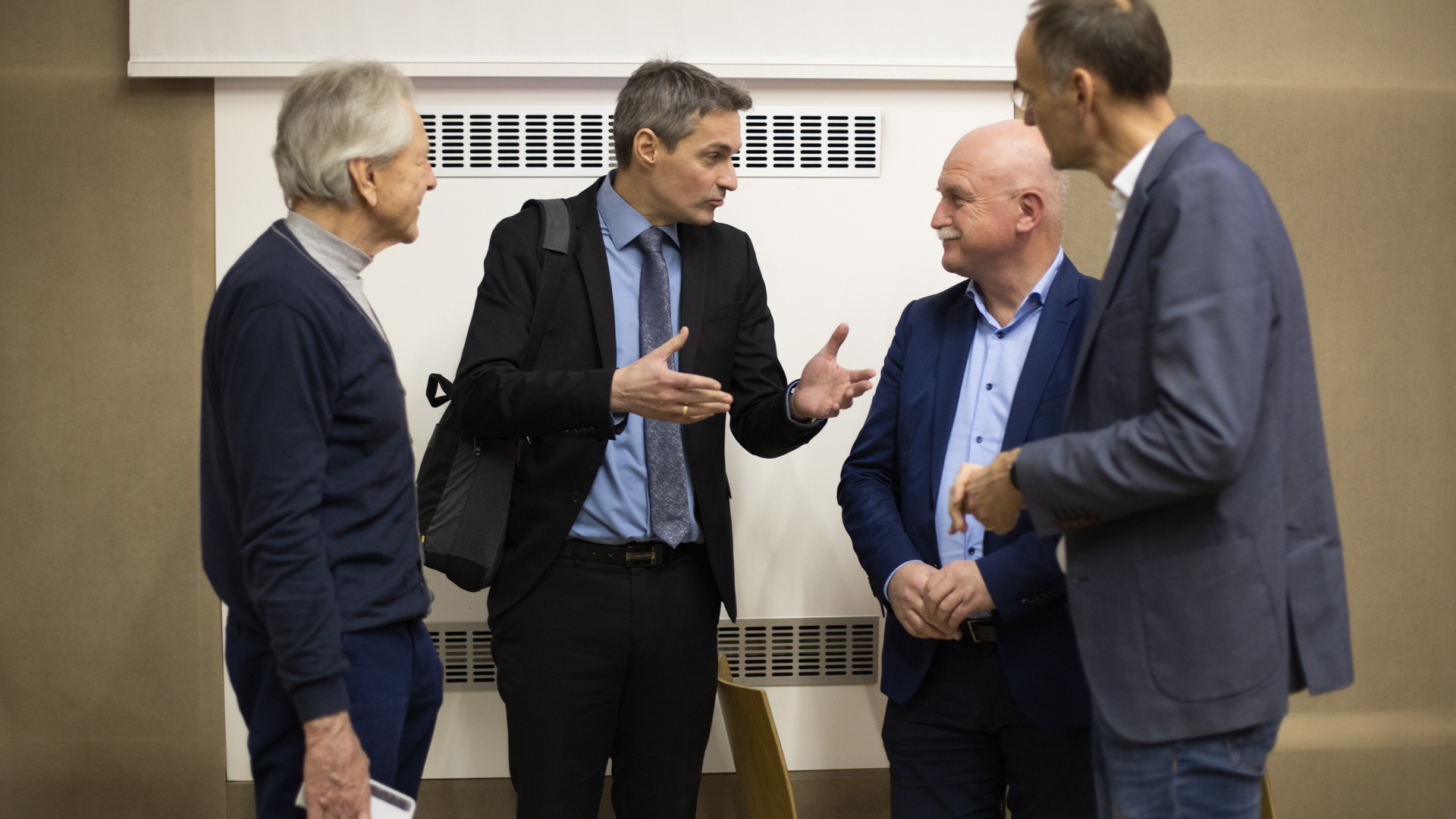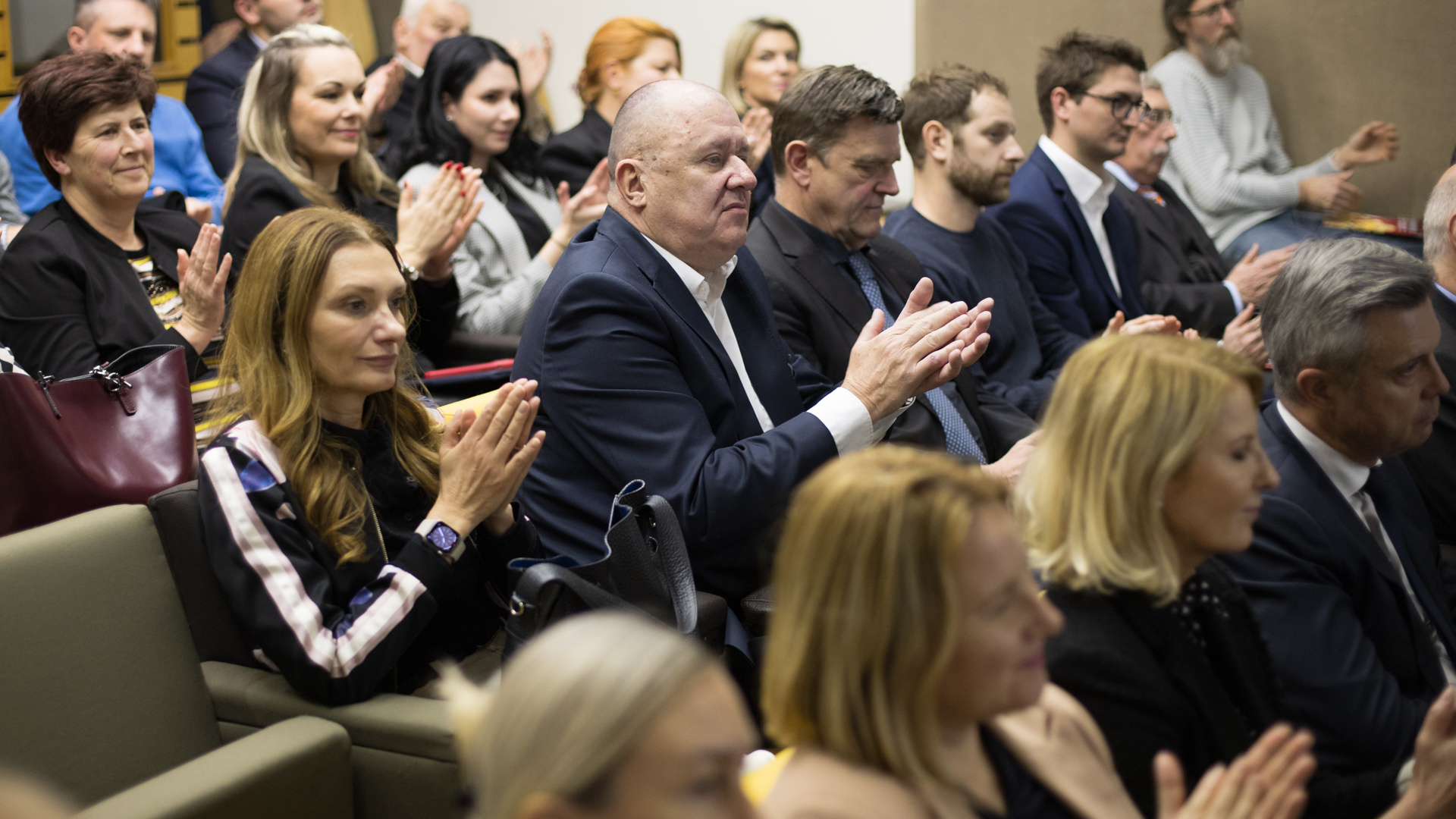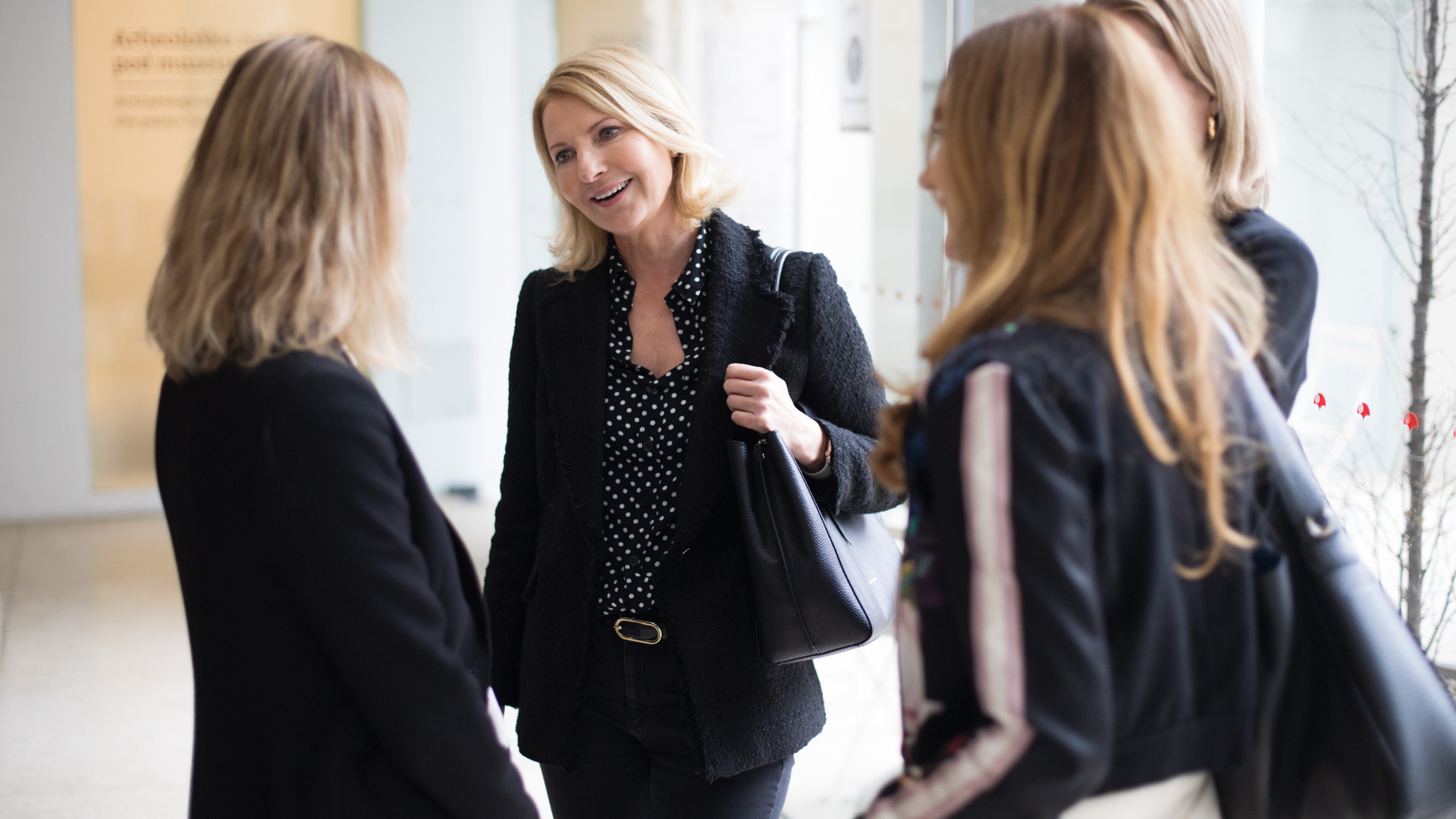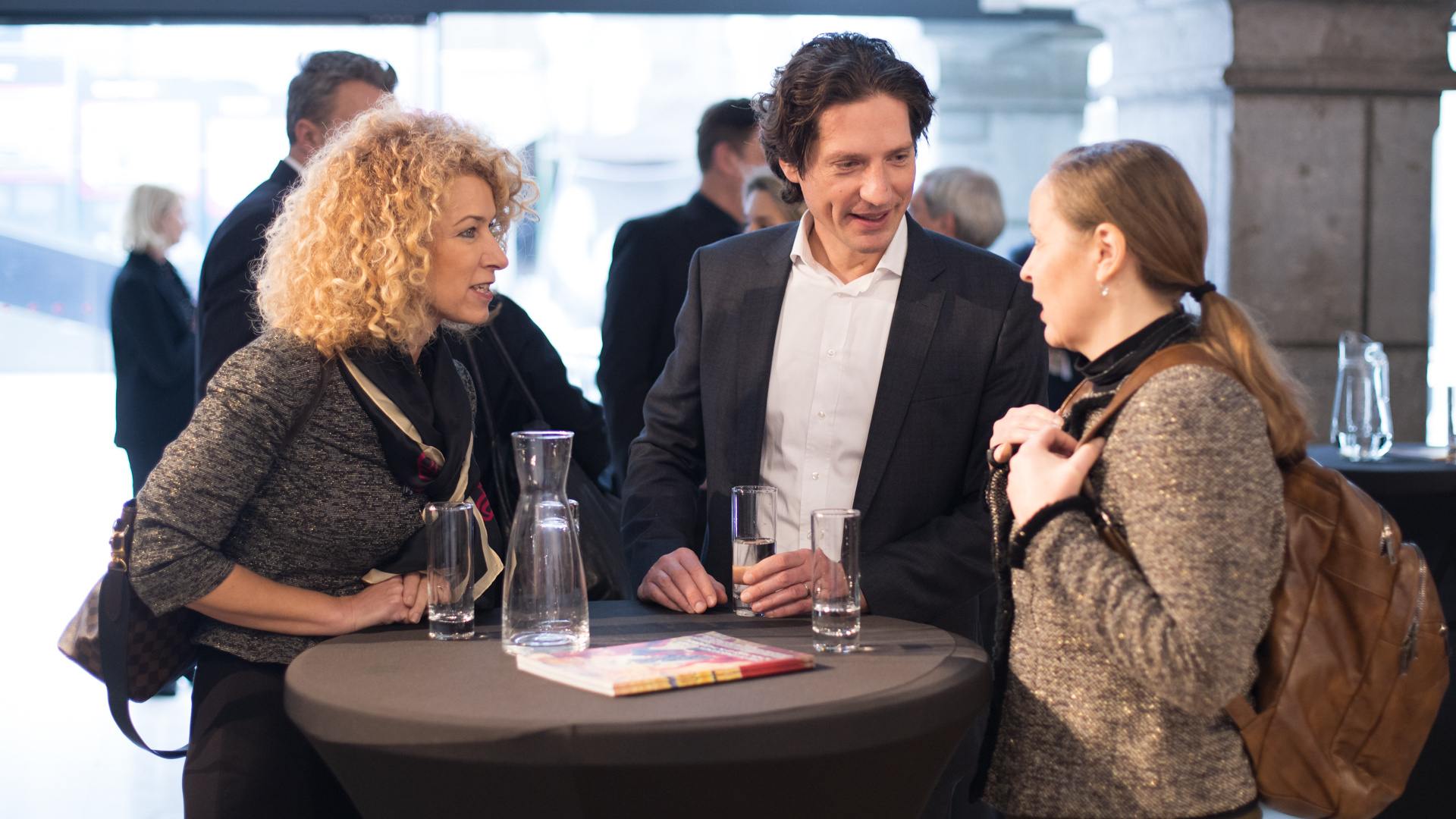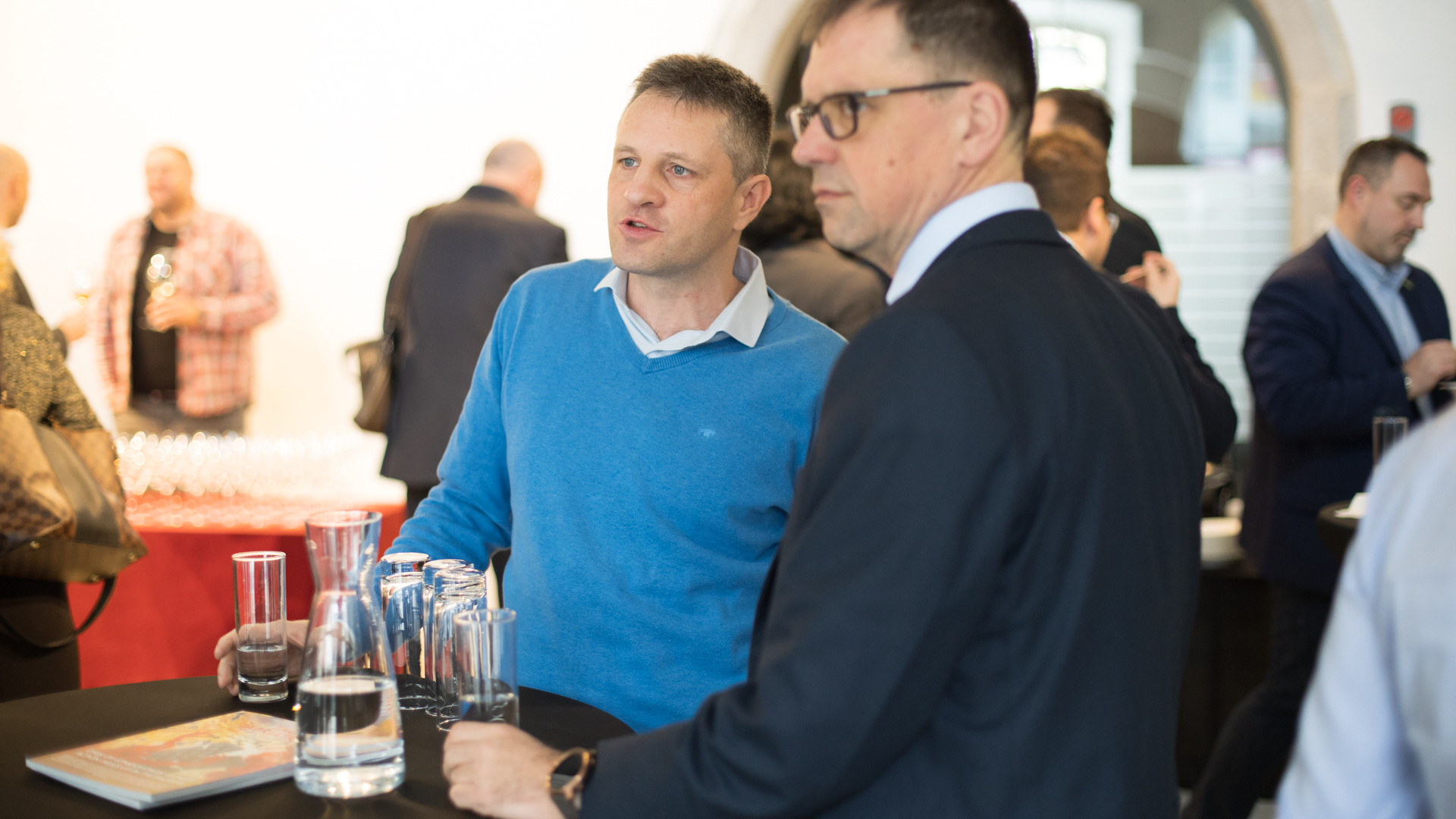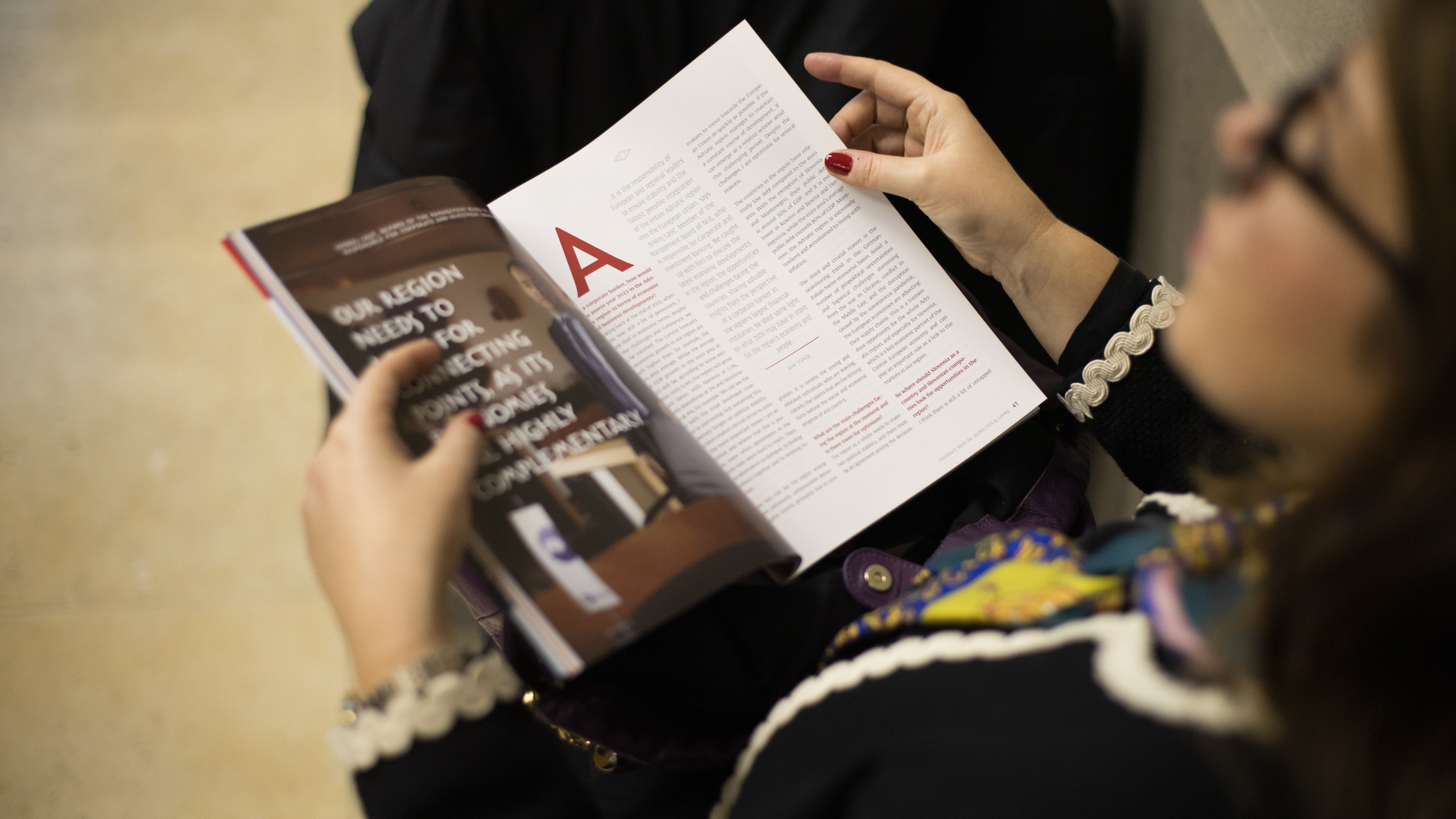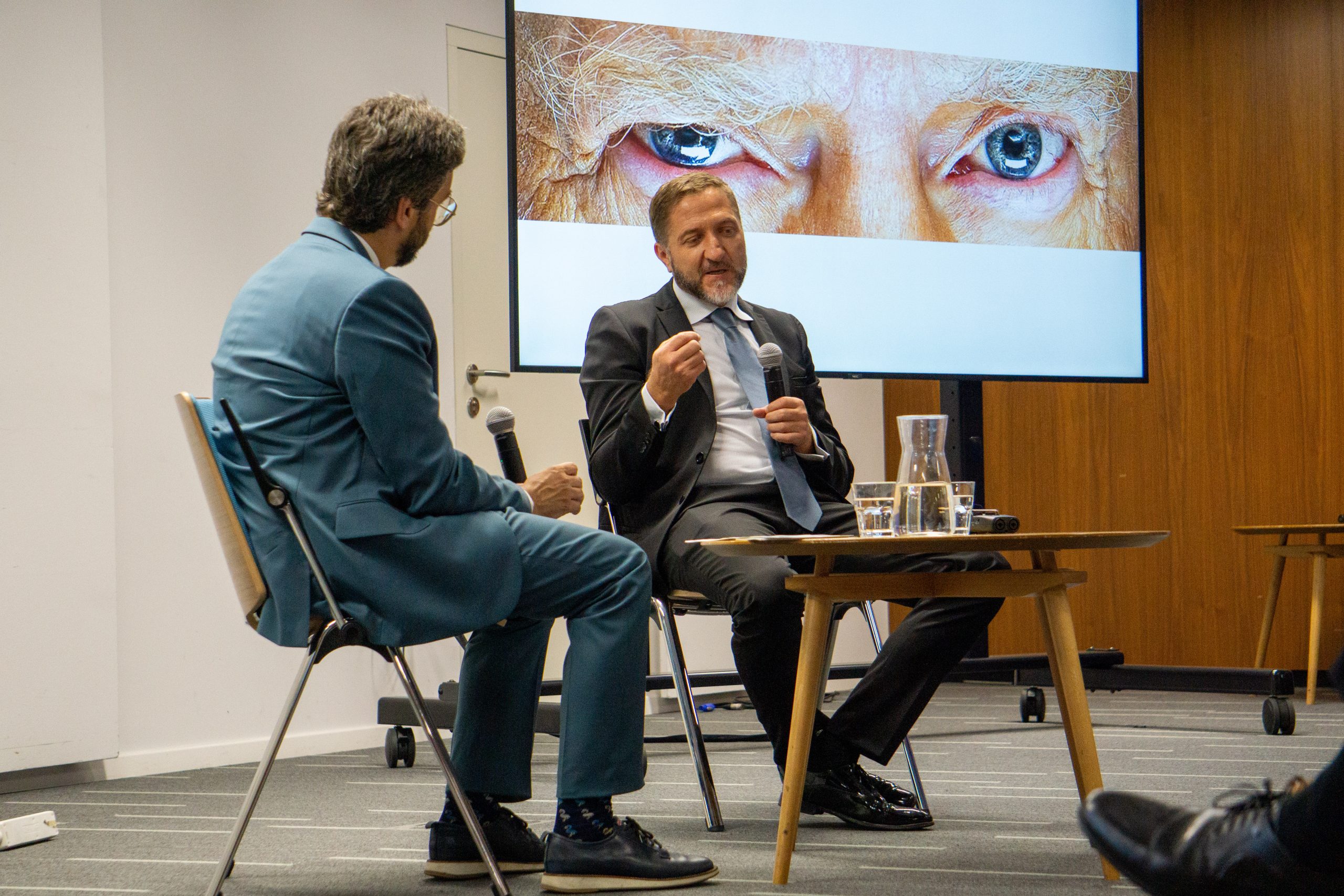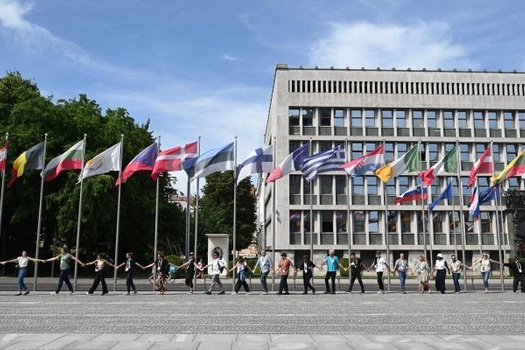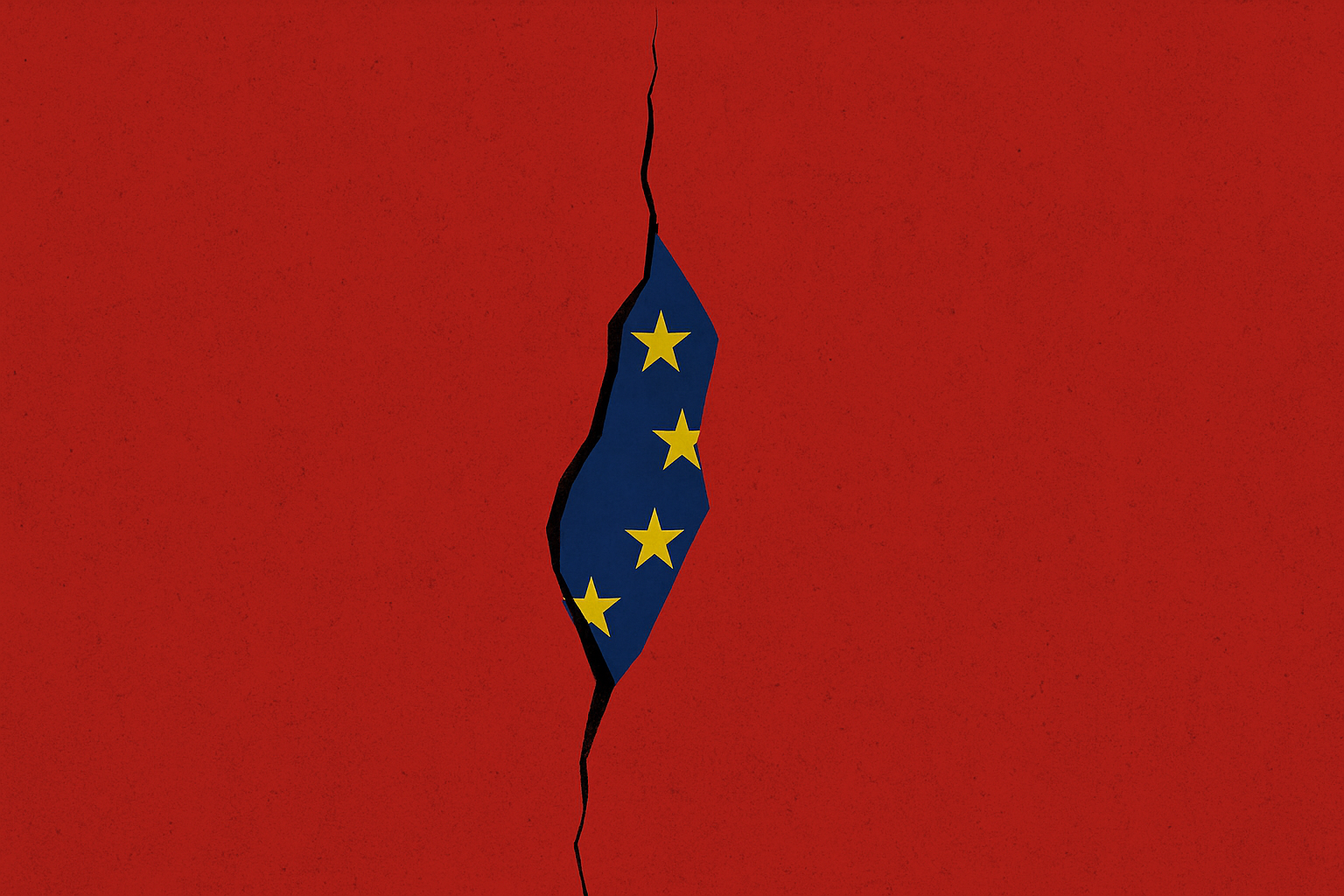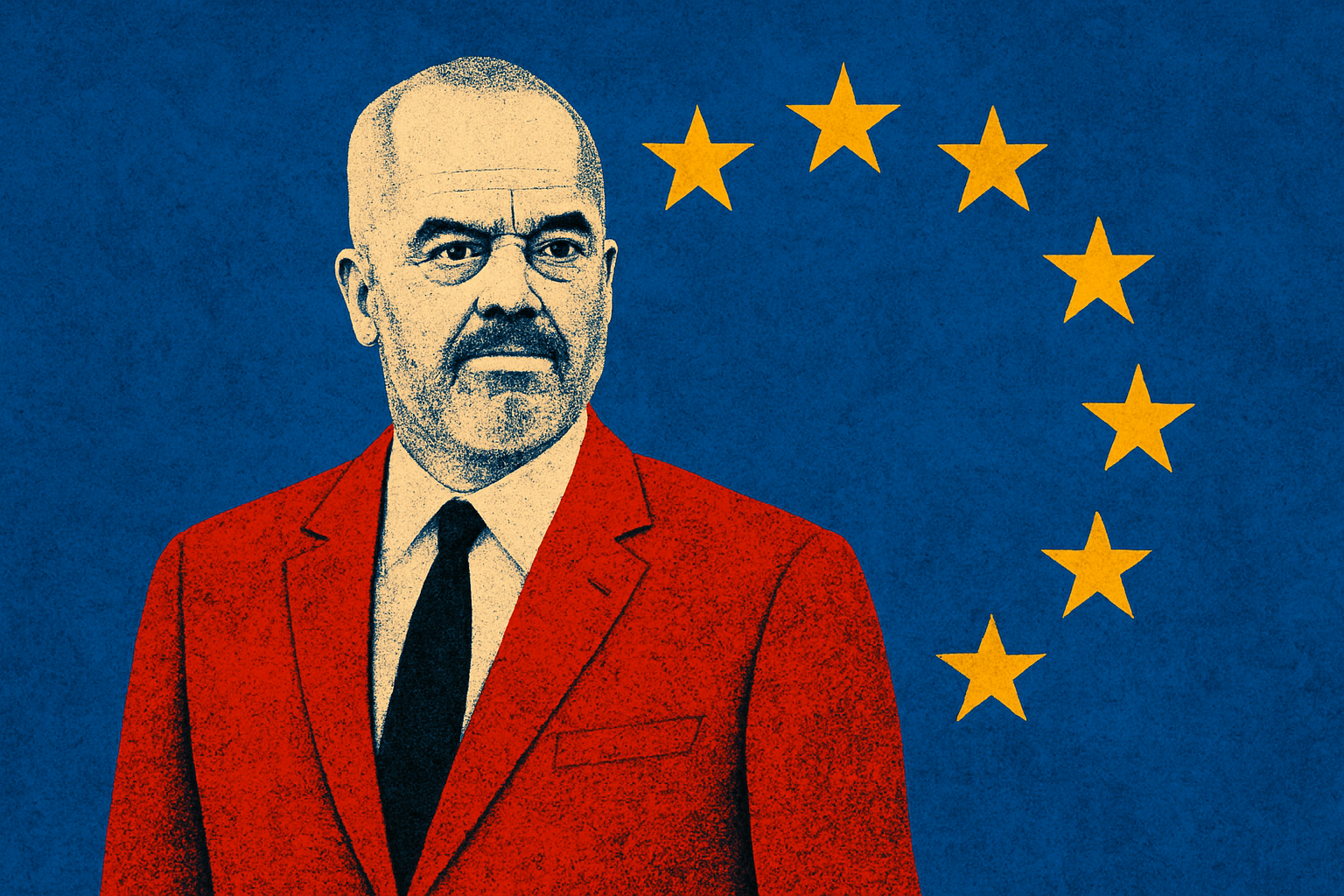Finance and business
Charting a Resilient Path
Maja Dragović
Editor of The Adriatic
Institute for Strategic Solutions hosts annual event to launch The Adriatic: Strategic Foresight 2024
The traditional annual event hosted by the Institute for Strategic Solutions took place at the City Museum of Ljubljana, marking the launch of the Institute’s annual publication, “The Adriatic: Strategic Foresight 2024.” This year’s event, titled “Call in Crisis: Macrodynamics, Climate, and Governance Challenges,” centered around understanding global developments driven by environmental crises, the war in Europe, technological advancements, and rapid geopolitical dynamics. The gathering aimed to delve into how these factors impact the Western Balkans, how the region responds to fast-paced events, and where Slovenia can identify opportunities for its strategic interests in this unpredictable environment.
Distinguished guests, including Tanja Fajon, Minister of Foreign and European Affairs Tanja Fajon, Andrej Lasič, member of the Management Board of NLB, Maja Krumberger, Director of the Slovenian Insurance Association, Dr. Jernej Štromajer, Secretary of the Strategic Council for the Economy at the Ministry of Economy, Tourism, and Sports, Dr. Tomaž Vuk, President of the Management Board of Salonit Anhovo, and Ivana Vrviščar, member of the Management Board of Pošta Slovenije (Post of Slovenia), provided crucial insights into these critical questions.
“We are in a time of strong geopolitical dynamics,« said Tine Kračun, Director of the Institute for Strategic Solutions, in his opening remarks. »This year’s edition of the magazine The Adriatic: Strategic Foresight 2024 looks at the impact of climate change and natural disasters on finance and logistics. All of this also significantly affects the Western Balkans region. If we want the countries in the region to align with global trends and strengthen democratically, the early integration of these countries into the common economic zone with the EU is necessary. Political integration can be discussed later in this case.”
Addressing the challenges of the global environment in 2024, Dr. Jure Stojan, a partner and director of development and research at ISR, discussed the need to make decisions based on reality rather than illusions, highlighting the impact of violence and geopolitical unrest on trade. “It is important not to make decisions based on illusions«, he noted. »We are (mistakenly) convinced that violence and geopolitical unrest will not affect trade, thinking that it only happens ‘over the fence’.«
Diplomatic vision
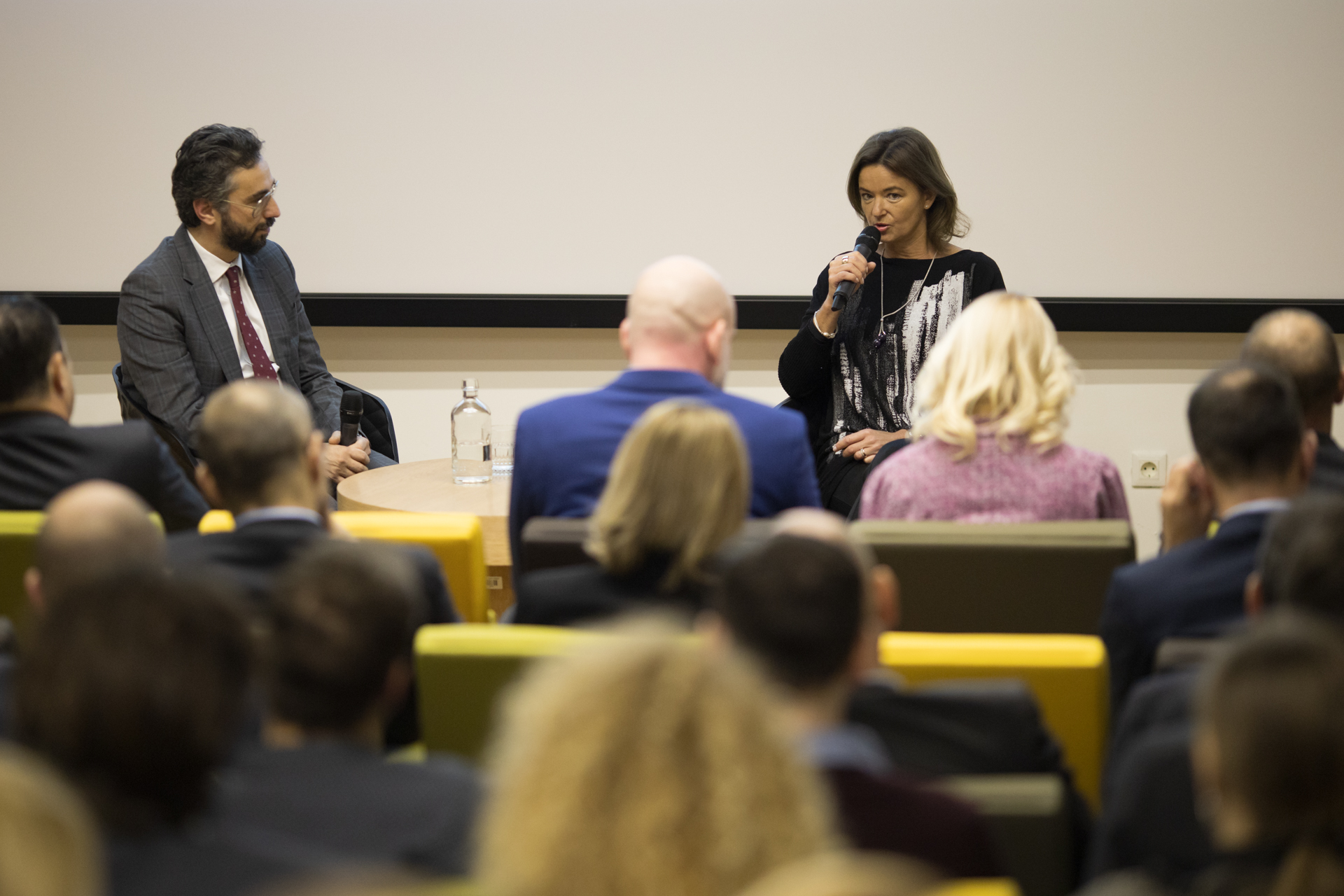
Deputy Prime Minister and Minister of Foreign and European Affairs Tanja Fajon disclosed how Slovenia intends to protect its interests in the United Nations Security Council and manage the escalating global conflicts. “The war in Ukraine and the conflict in Gaza have divided the world. This increases the role of non-permanent members like Slovenia, who can influence the formation of majorities with their votes,” she said. “Slovenia has always been recognised as an advocate and guardian of human rights. Now we must adapt to new global challenges.”
One of these challenges is climate change, and the minister pointed out that the United States, the EU, and China stand as the current biggest polluters. “These countries bear the greatest responsibility for addressing climate change.”
In a dialogue with Fajon, Kračun also highlited the polluting problems in the Western Balkan region – most countries still rely on coal, a point which the minister also agreed with. “Phasing out fossil fuels presents a serious challenge for successfully implementing the green transition in the region.”
Gradual integration
Despite 20 years of efforts to expand the EU to the Western Balkans, according to the minister, we are still far from the goal. “That’s why Slovenia has taken a proactive stance to integrate the Western Balkans into the EU by 2030«, Fajon said. »This scenario may seem illusory, but it represents a strategic necessity. This is a fact that is increasingly recognised by larger countries such as Germany and France.”
“Today, when we talk about the gradual integration of the Western Balkans into the EU, the plan is to include these countries gradually in areas where they already have aligned policies. Gradual integration is a concept agreed upon by both the EU and the Western Balkan countries, allowing these countries to join the single market,” Fajon emphasised.
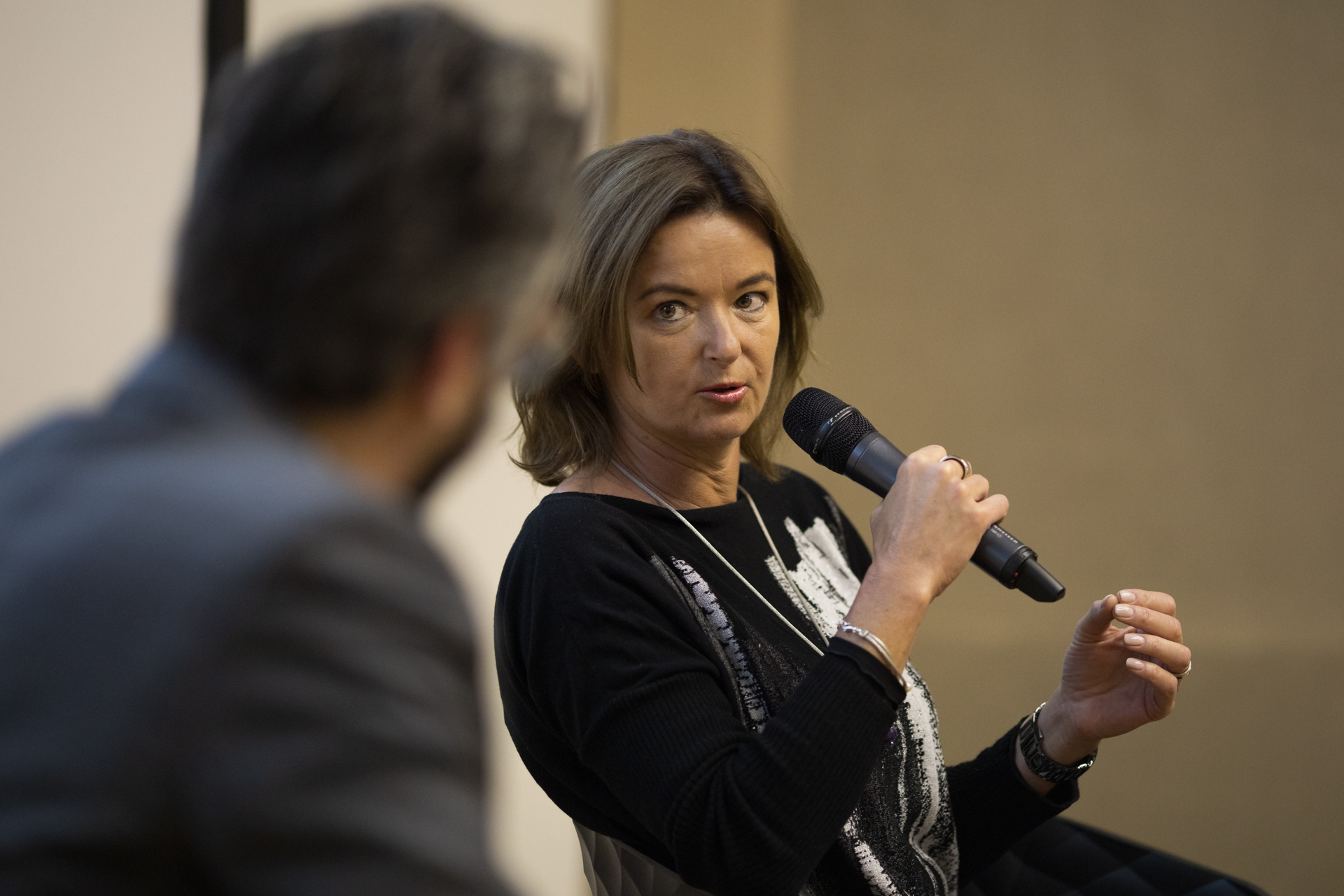
Navigating business amid constant crisis
Climate change, increased uncertainties, changes in geopolitical dynamics, logistics challenges, and the question of integrating countries into the EU in the Western Balkans—all of these factors affect businesses. A roundtable discussion on how companies can adapt to new paradigms and seek new economic models was moderated by Petra Juvančič, Director of the Association Manager.
The question of how to lead state policy amid the risks of climate change and be as prepared as possible is crucial in the modern world. Dr. Jernej Štromajer, Secretary of the Strategic Council for the Economy at the Ministry of Economy, Tourism, and Sports, emphasized that we live in a period of constant crises, with climate change crisis constantly looming over us. “Climate change is a reality we must confront, and now we face the question of who will bear the financial burden of the green transition.”
The Ministry of Economy has launched the GREENovated Slovenia project, focusing on how to be innovative and efficient in allocating resources for research, development, and education. “We believe that Slovenia’s competitive advantage lies in its knowledge and technological progress, which we can offer to the world”, Štromajer said.
Maja Krumberger, Director of the Slovenian Insurance Association, pointed out that, aside from last year’s natural disasters and the fire in the Karst region the year before, we have witnessed a record number of windstorms during this period. “We must not deceive ourselves into thinking that these events are uncontrollable because they are manageable.” Andrej Lasič, a member of the Management Board of NLB, added that companies are increasingly aware of the potential consequences of climate change and are incorporating them into their business strategies, adding that “we must take care of our security and resilience with common sense.”
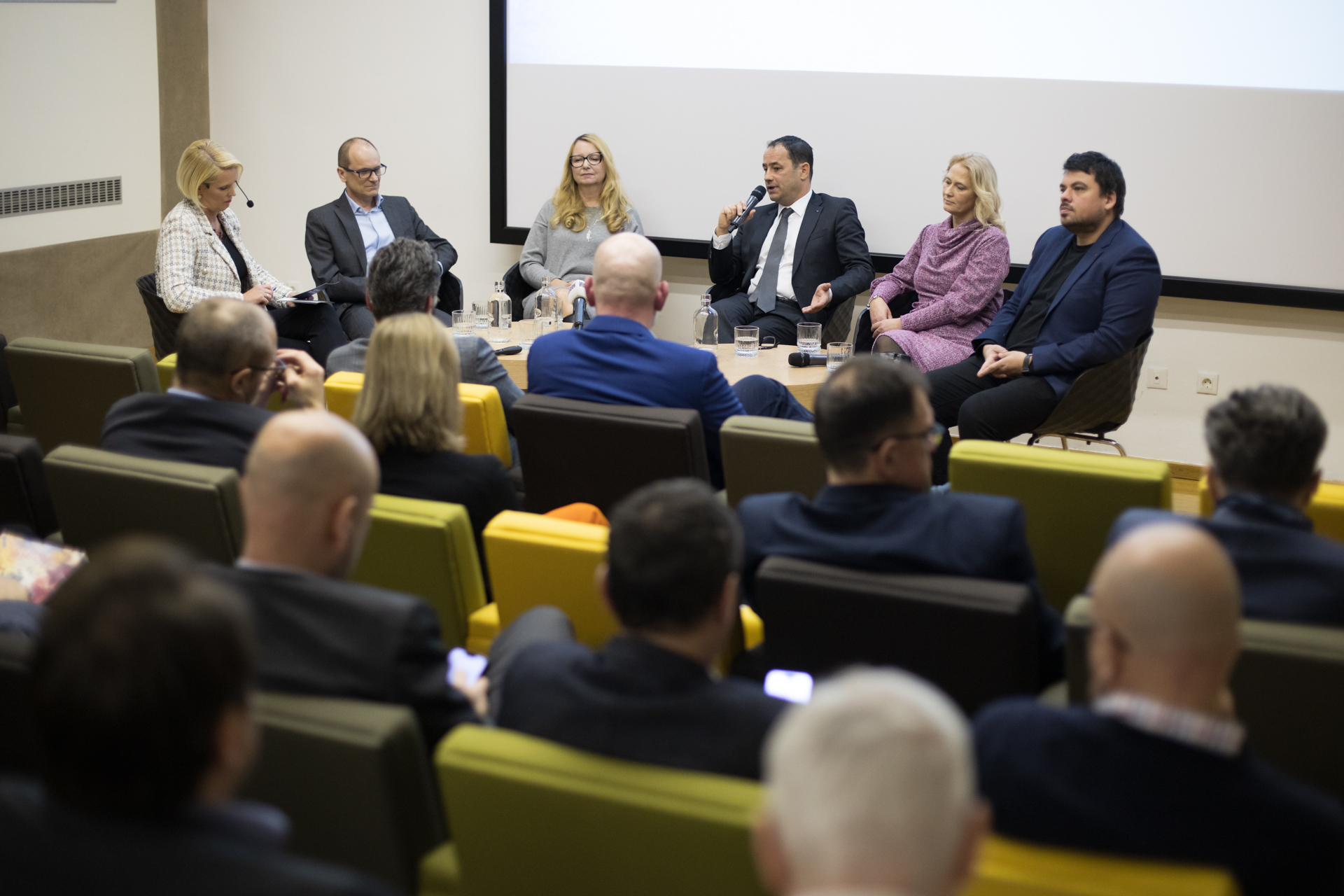
Striking a balance
Dr. Tomaž Vuk, President of the Management Board of Salonit Anhovo, the cement plant with the longest tradition in Slovenia, emphasised the importance of finding a balance between caring for the environment and responsibility towards employees. “We strive to find such balances that enable sustainable growth and development of society. On the other hand, not all of us can adapt to this process at the same pace. This also represents an opportunity, as those who implement this transition more effectively will also be more successful.”
He cautioned that we should not delude ourselves into thinking that we can solve everything on our own. “For example, in efforts towards a circular economy, alignment with other economic entities is essential.” He argued it is crucial for companies to recognise and understand their own capabilities and goals. “In this work, we depend on other stakeholders in society.”
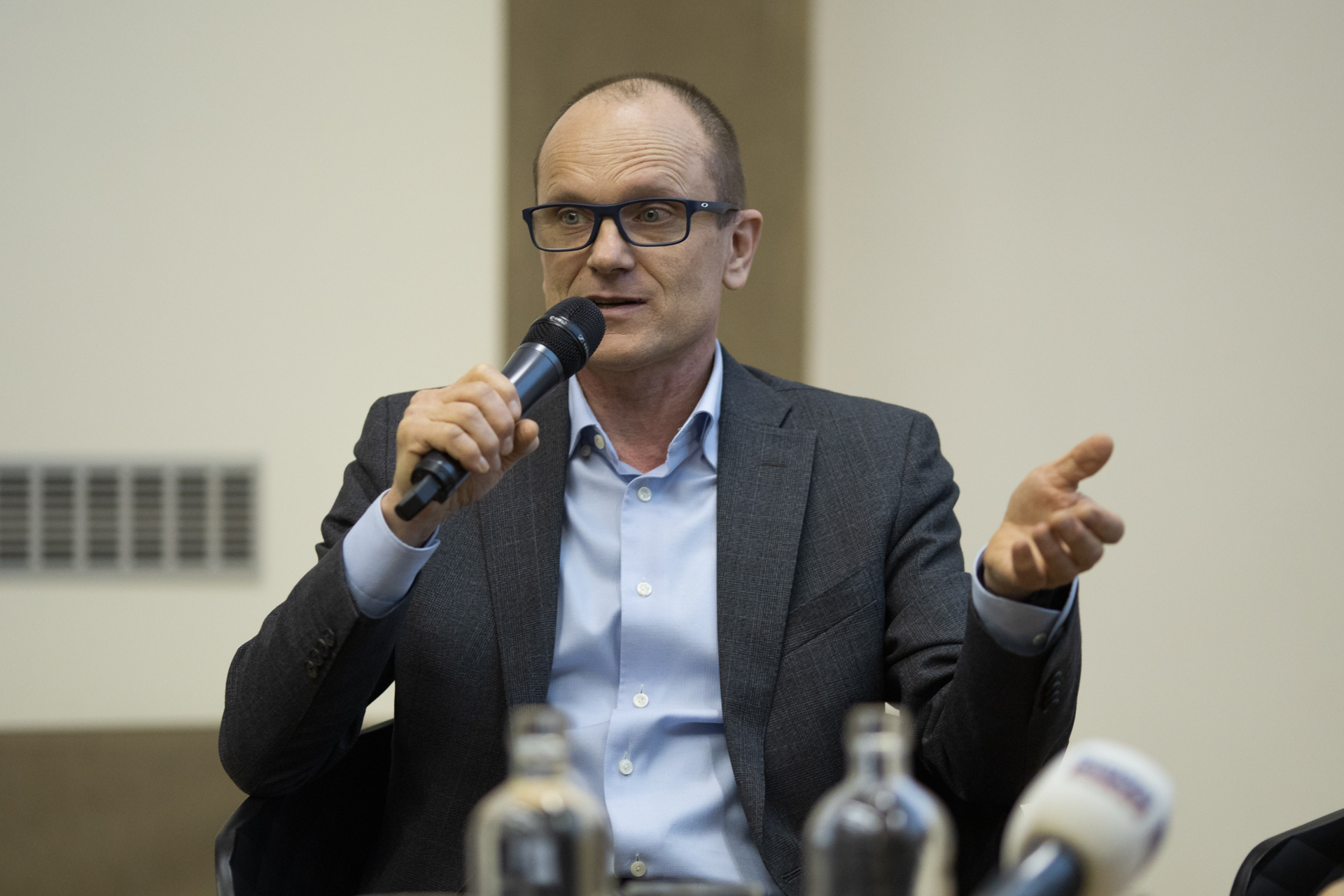
Intensifying geopolitical dynamics ahead
Ivana Vrviščar, a member of the management board of Pošta Slovenije, pointed out that most companies are already intensely engaged in the green transition. Still, at the same time, we are also facing growing geopolitical challenges, she added, pointing to the current situation in the Red Sea, through which 18% of global trade passes.
“Pošta Slovenije, as a logistics company, is well aware of these challenges.” Although the green transition is at the forefront of many companies’ interests, there is a high probability that geopolitical dynamics will become even more pressing in 2024, she noted, adding that “every crisis brings certain opportunities.”
In conclusion, Dr. Tomaž Vuk highlighted the importance of such discussions for the success of the Slovenian economy. “I wish for more discussions like these that provide a clear view without ‘blinders,'” he said.
The sobering discussion was built on during the networking event that followed. To those of you that attended, we hope you enjoyed the event as much as we loved hosting it! And to those of you who missed out, you can get your copy of The Adriatic: Strategic Foresight 2024 by contacting us at info@isr.si
We’d like to thank our partners, SPIRIT Slovenija; our general partner and sponsor, NLB d.d., and our sponsors Zavarovalnica Triglav, d.d., INTEREUROPA, Global Logistics Service, Salonit Anhovo, Roche Slovenija and Petrol Group.

